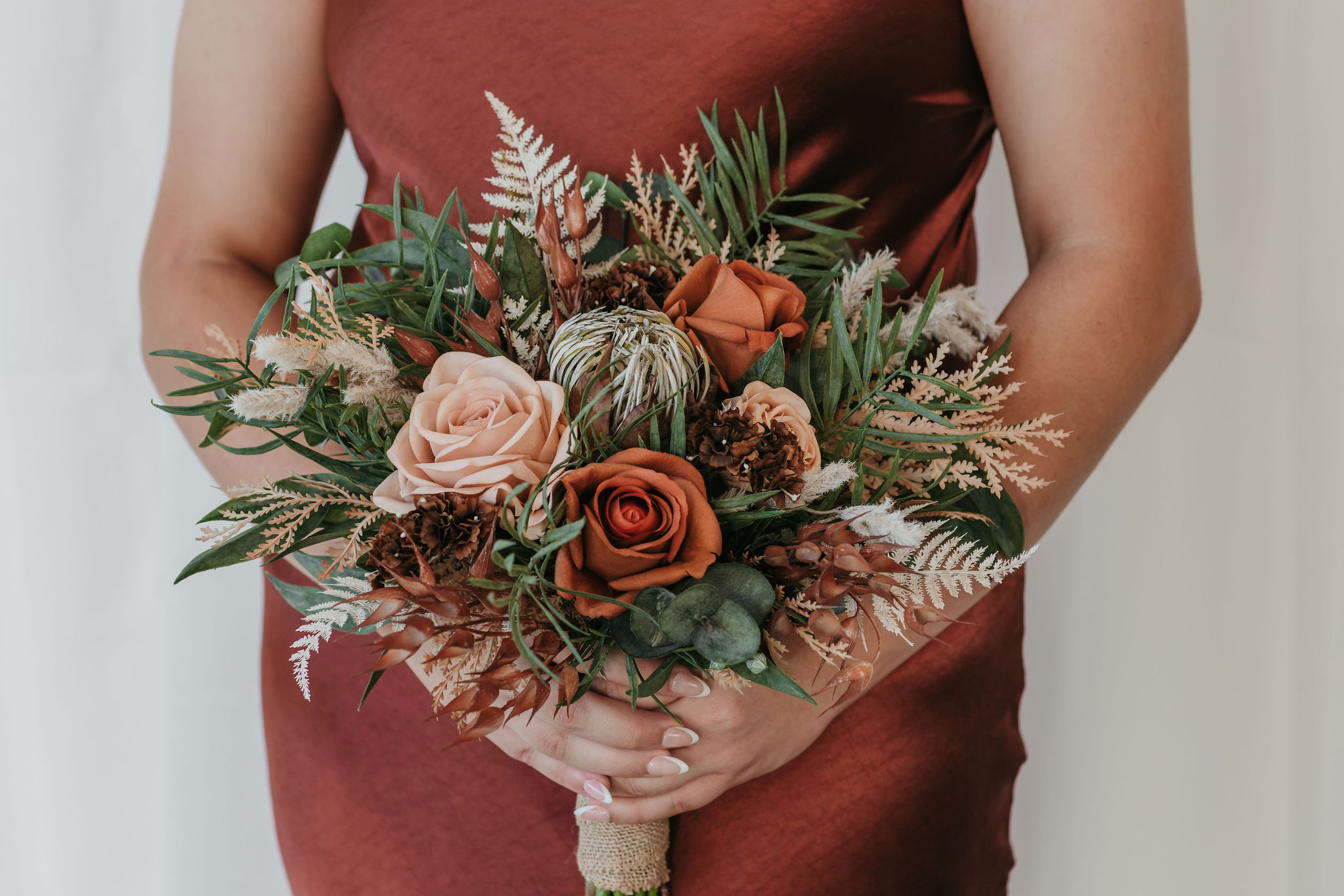What Is a Bridal Bouquet and Why Is It Important?
A Bridal Bouquet is one of the most iconic accessories of any wedding. It’s more than just a floral arrangement — it symbolizes love, happiness, and harmony while enhancing the bride’s overall look. Carefully chosen blooms help reflect the theme and mood of the wedding, bringing together all the elements of the celebration in a single, meaningful accent.
Historically, bridal bouquets were used as symbols of prosperity and fertility. Today, they are an expression of the bride’s individuality and the emotional tone of the ceremony. A thoughtfully designed bouquet not only complements the wedding dress and hairstyle but also becomes a centerpiece in cherished wedding photos.
Popular Styles of Bridal Bouquets
Modern brides can choose from a variety of bouquet styles that match different wedding aesthetics. Here are the most popular ones:
1. Rustic Bridal Bouquet
The rustic style emphasizes natural simplicity. These bouquets often include wildflowers, greenery, dried flowers, and even wheat spikes. Natural twine, linen, or jute ribbons add a charming touch. Rustic bouquets are ideal for countryside or outdoor weddings.
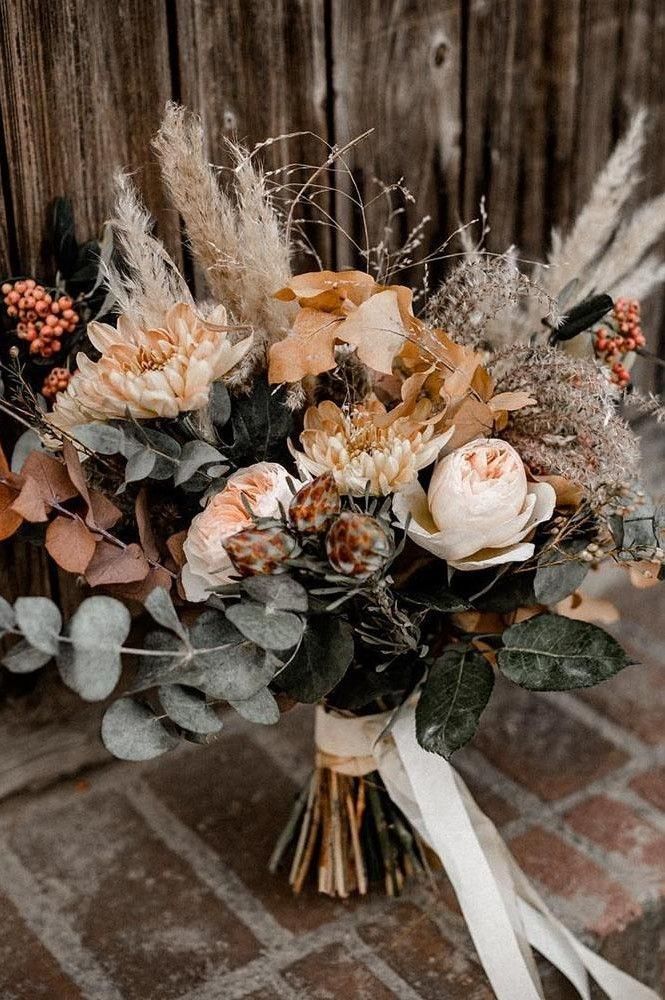
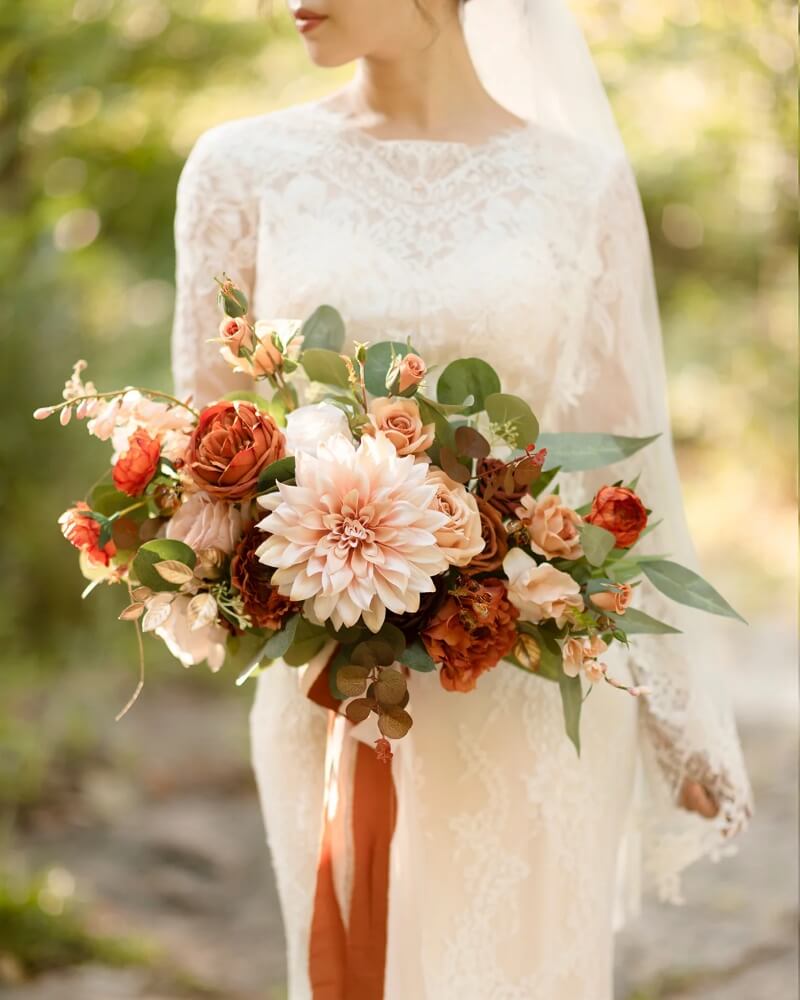
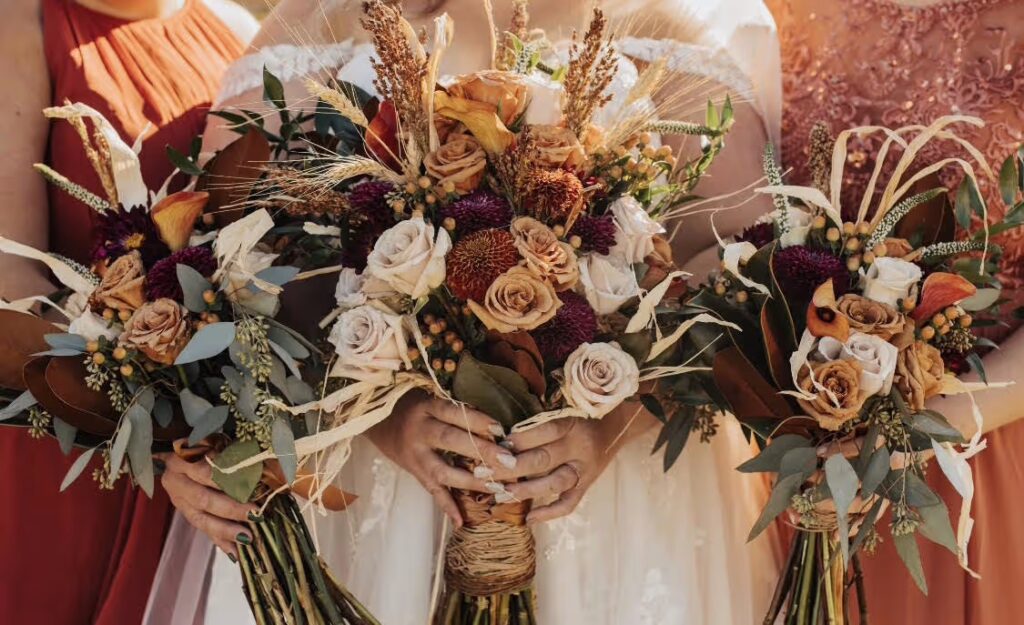

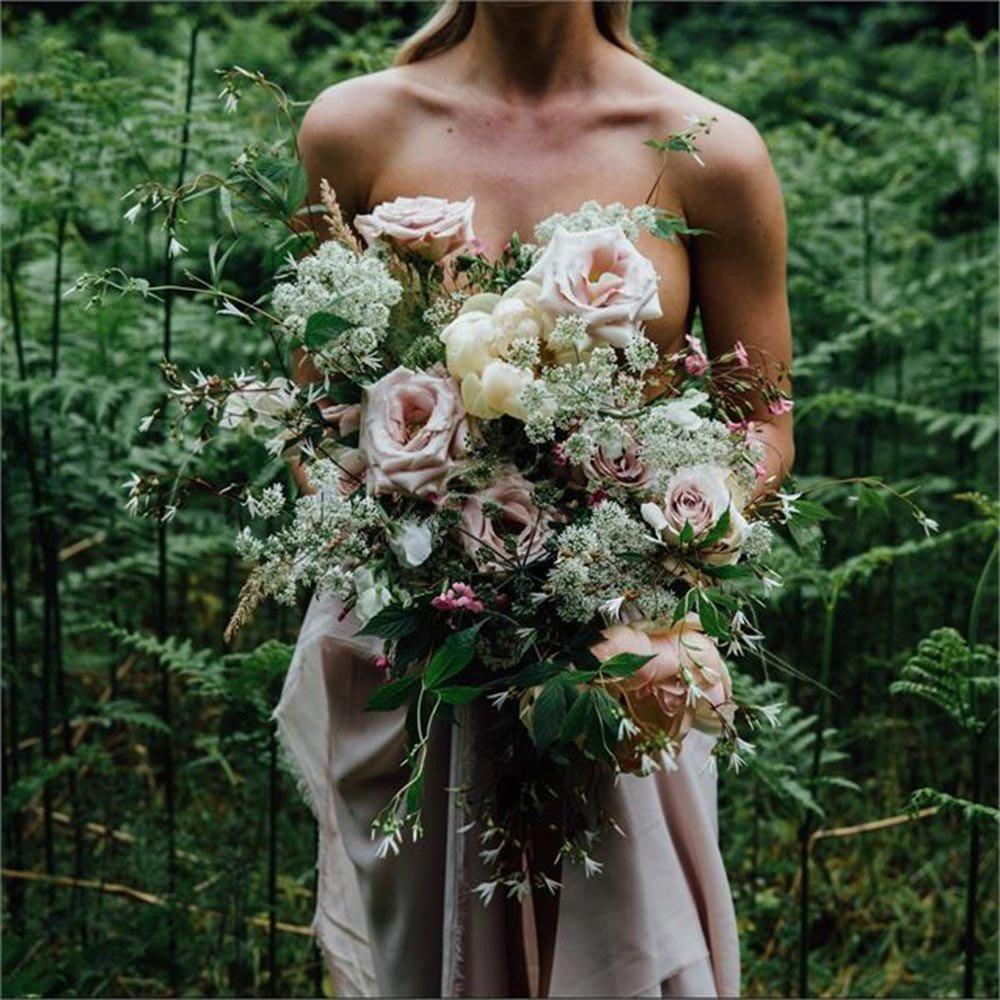
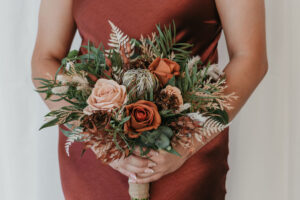
2. Provence (French Country) Style
Inspired by the lavender fields of southern France, Provence-style bouquets feature lavender, soft roses, and pastel-hued flowers like irises. They’re romantic, fragrant, and delicate, often tied with soft floral ribbons or feather accents for a light, airy look.
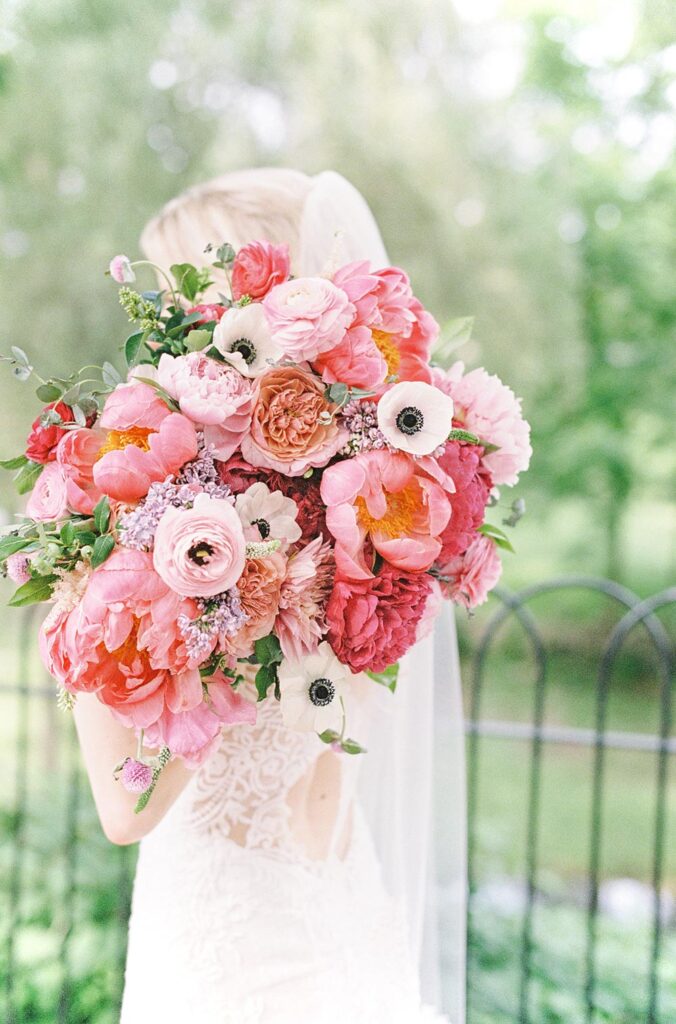
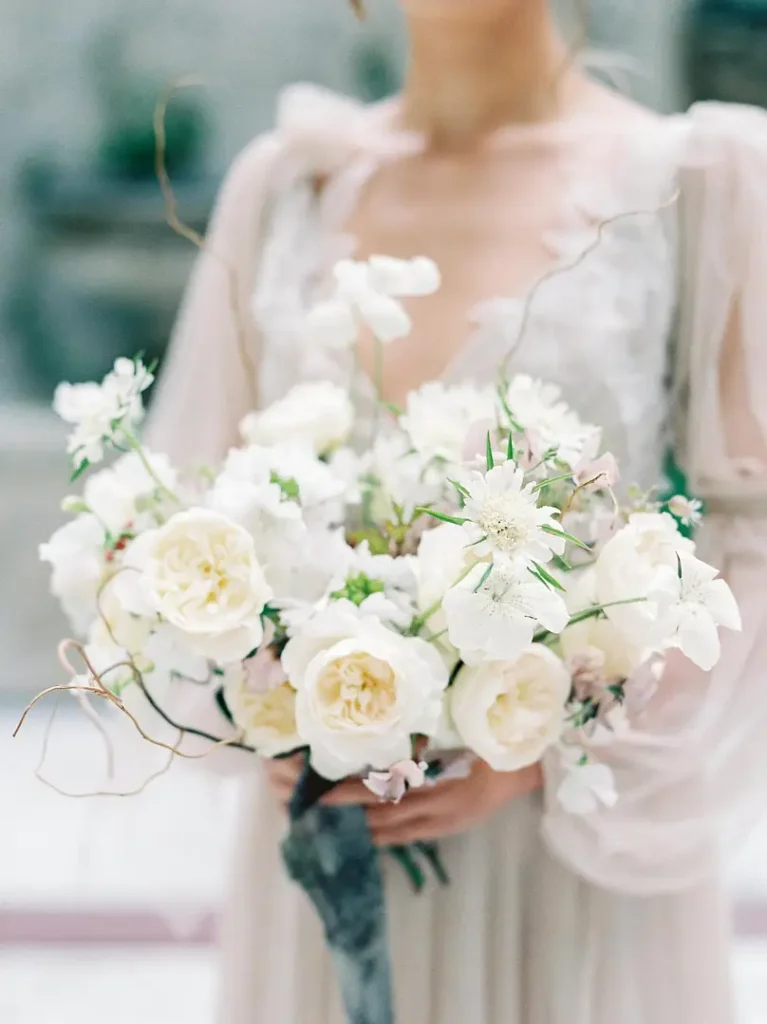
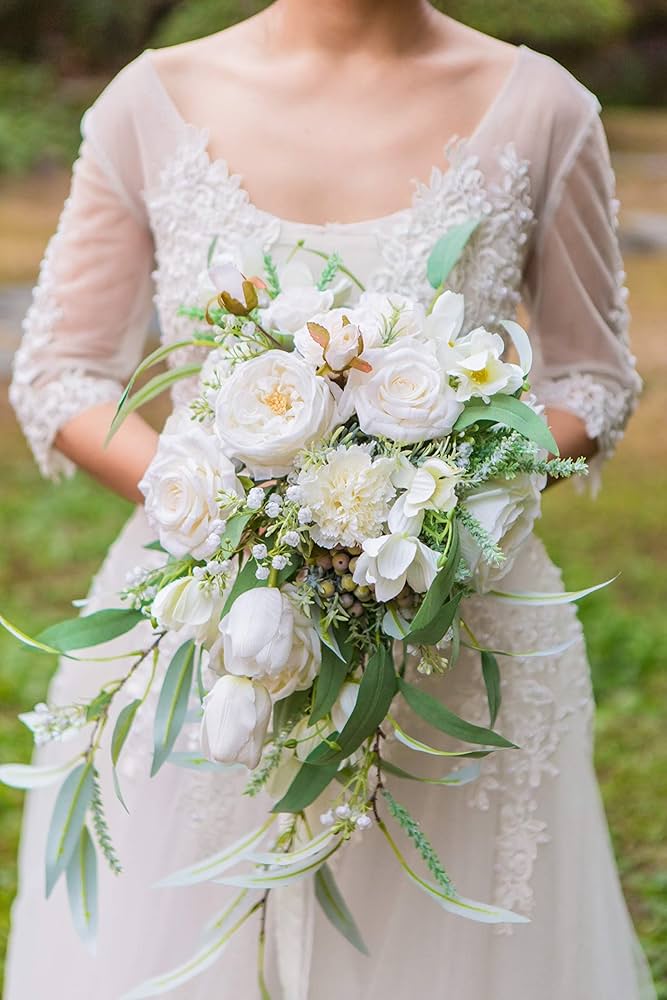
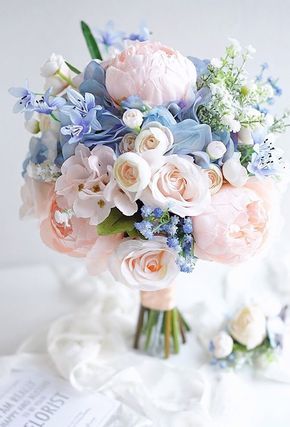
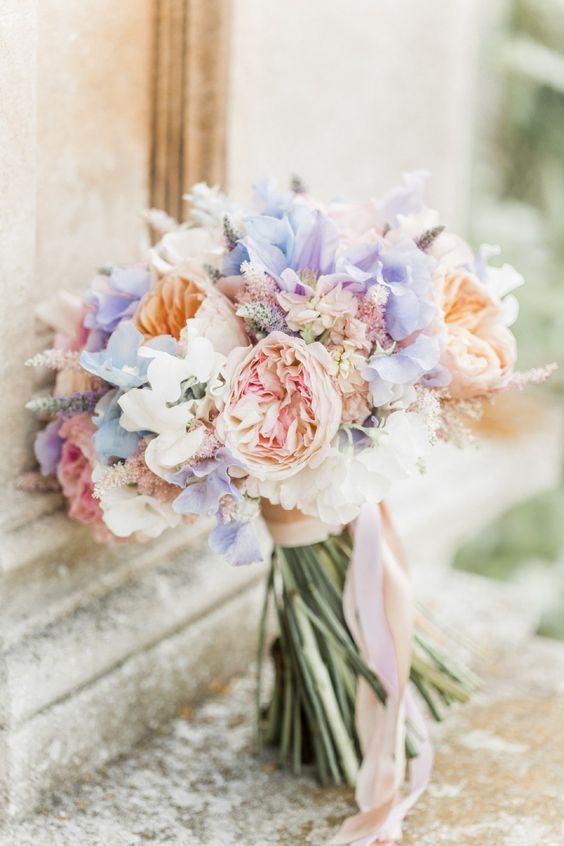
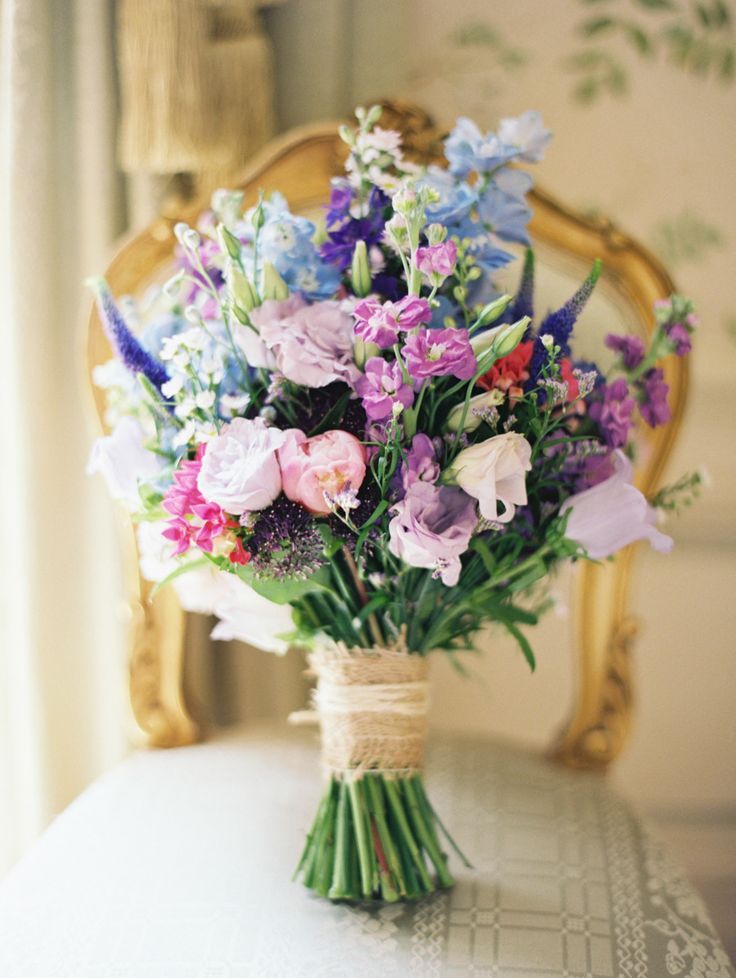
3. Boho (Bohemian) Style
For free-spirited and creative brides, boho bouquets are the way to go. They are bold, colorful, and often asymmetrical, featuring exotic flowers, lush greenery, and long flowing ribbons. Cascading shapes and unexpected textures give them a unique artistic flair.
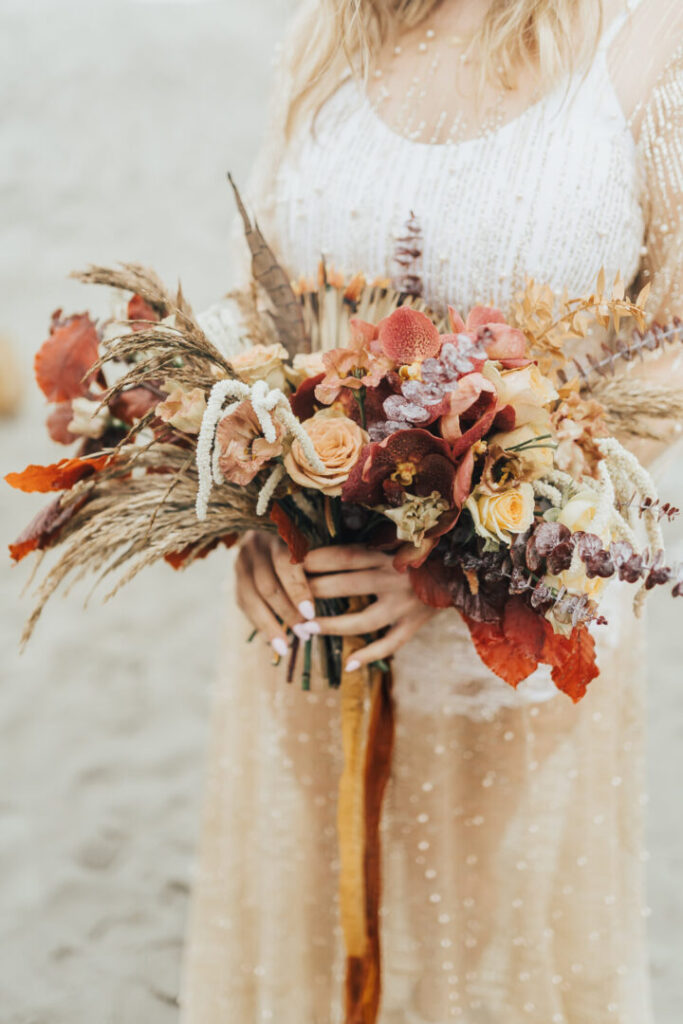

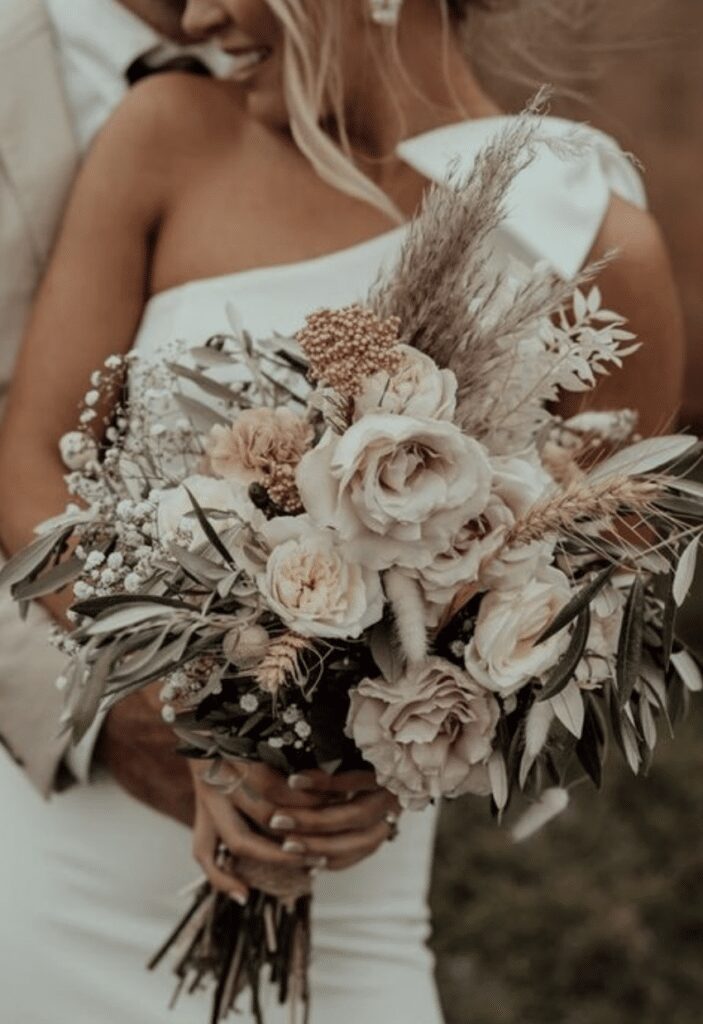
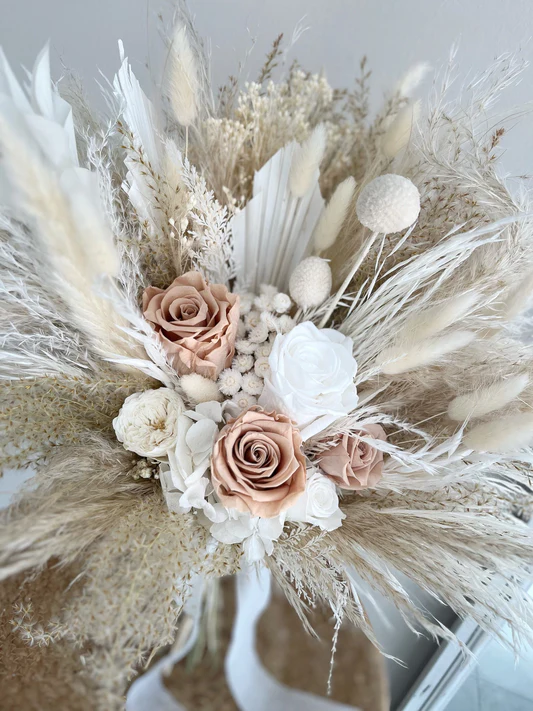
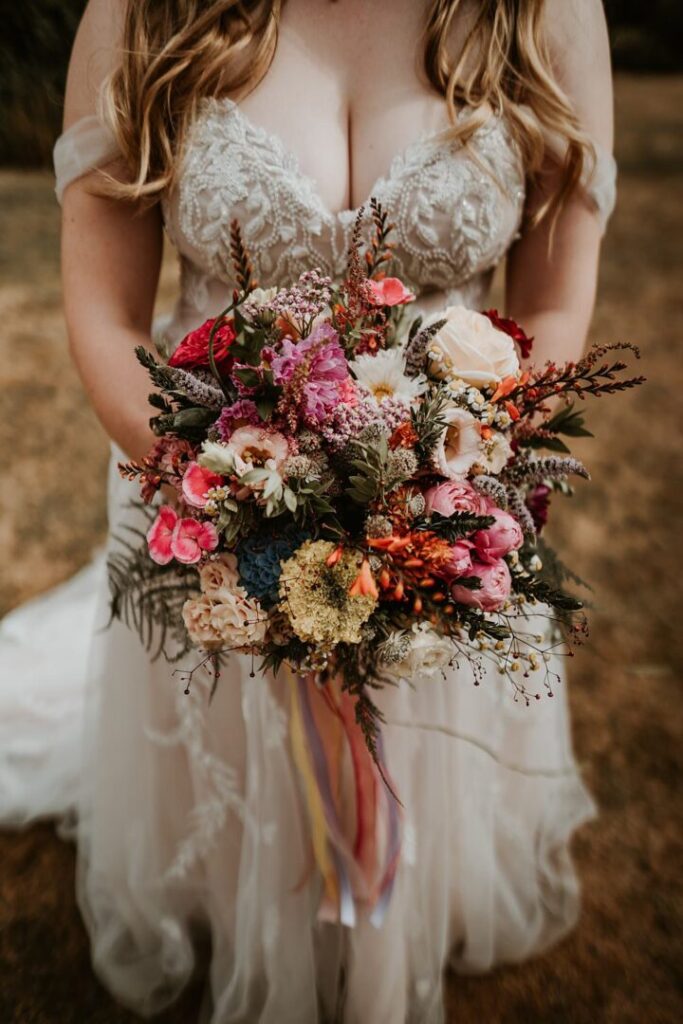
Choosing the Right Flowers for Your Bridal Bouquet
The flowers you choose convey emotion, symbolism, and personal taste. Here are some of the most beloved blooms in modern bridal bouquets:
🌹 Roses
Roses are timeless and versatile, symbolizing pure love. White roses reflect innocence, pink adds romance, and red embodies passion. Rose petals are also used for wedding decor, adding elegance throughout the venue.
💐 Hydrangeas
Known for their fullness and soft color gradients, hydrangeas create volume and airiness. Their pastel shades—especially blue and lavender—are perfect for round or cascading bouquets.
🌸 Peonies
A favorite for spring and summer weddings, peonies symbolize happiness and luxury. Their lush blooms work beautifully in both traditional and contemporary arrangements.
🌺 Orchids
Orchids add sophistication and a tropical touch. These elegant flowers are often focal points in destination or exotic-style weddings.
🌷 Other Popular Choices
Tulips, anemones, chrysanthemums, and lilies also make regular appearances in bridal bouquets. Seasonal flowers like white lilies for winter or bright anemones for spring help anchor the bouquet in the time of year.
How Should a Bridal Bouquet Look?
A bride’s bouquet should harmonize with her dress, hairstyle, and overall wedding style. The shape, size, and color palette must be carefully curated to complete the bridal image.
✔ Classic Wedding Dresses
Opt for a white bouquet with orchids, lilies, or peonies to maintain elegance.
✔ Modern Dresses or Bridal Suits
Try minimalist or bold designs: field-style bouquets, vivid colors, or asymmetrical shapes add character.
✔ Seasonal Considerations
- Spring/Summer: Soft pastels like blush, peach, and cream.
- Autumn: Rich hues—burgundy, orange, mustard.
- Winter: White roses and green accents evoke crisp elegance.
Decorative elements like satin ribbons or silk ties add movement and refinement.
The Meaning Behind Colors and Flowers in the Bridal Bouquet
Every flower and hue has symbolic weight. Here’s a quick guide:
| Color | Symbolism |
|---|---|
| White | Purity, new beginnings |
| Pink | Romance, tenderness |
| Red | Passion, deep love |
| Peach | Gratitude, joy |
| Blue/Lavender | Calmness, elegance |
| Burgundy | Strength, abundance |
Florists often incorporate symbolic blooms like:
- Hydrangeas (sincerity, gratitude)
- Peonies (prosperity, romance)
- Anemones (anticipation, protection)
Matching your bouquet’s color palette with the venue décor, dress accents, and groom’s boutonniere creates a cohesive and stunning visual story.
Practical Design Elements in a Bridal Bouquet
Beyond aesthetics, functionality matters too. A bouquet should be comfortable to hold throughout the day. Florists carefully wrap the handle (or “stem”) with soft ribbons or fabric, adding style and ease of grip.
Key Design Tips:
- Choose blooms that will stay fresh all day.
- Opt for a bouquet size proportionate to your body and dress.
- Include long ribbons or greenery for extra movement and softness.
- Match with your hairstyle — small floral hairpieces can complement the bouquet beautifully.
Benefits of a Well-Designed Bridal Bouquet
A professionally designed bridal bouquet:
- Highlights your individuality and enhances your dress
- Serves as a symbolic gesture of love and happiness
- Completes your look with color and movement
- Matches the wedding theme and seasonal tones
- Uses flowers that will stay vibrant through the ceremony and photos
- Harmonizes with bridesmaids’ bouquets and venue decor
- Creates lasting memories and stunning photos
From rustic to boho, Provence to classic elegance, the Bridal Bouquet is a powerful element that brings beauty, emotion, and unity to your big day.
Let Your Bouquet Tell Your Story
The Bridal Bouquet is a visual and emotional centerpiece of the wedding. Whether you choose soft pastels, bold colors, or natural textures, let your bouquet reflect your personality and love story. Collaborate with a skilled florist, share your vision, and don’t be afraid to break tradition. After all, your bouquet is not just about flowers — it’s about you.


